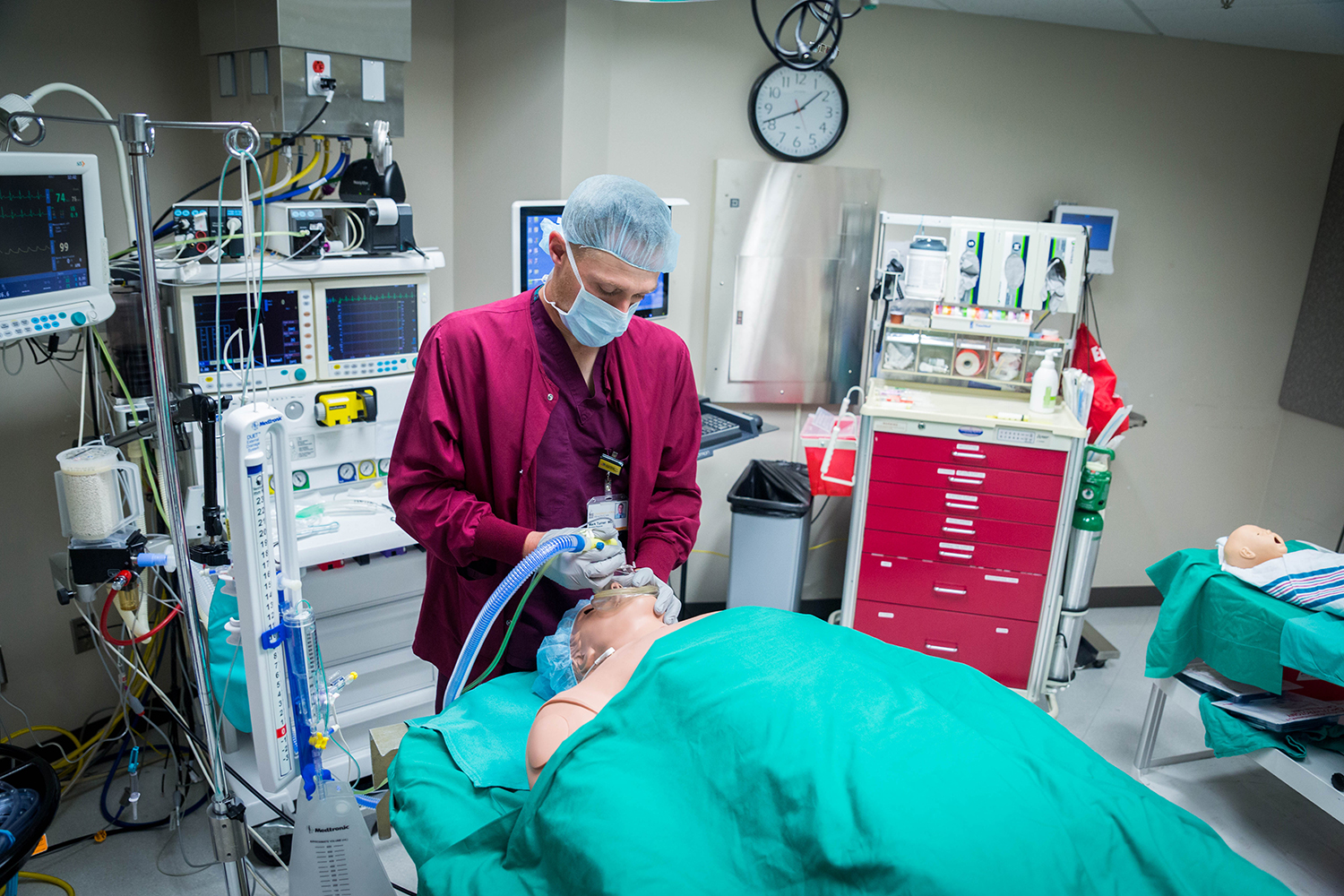Iowa Anesthesia Residency Program
What changes have you made recently?
All good programs make changes here and there. We want to continue to polish our strengths and improve our weaknesses. Additionally, we must keep up with changes mandated by the accreditation board.
Restructured didactic schedule
Our didactic program has been restructured to allow for dedicated educational time. Each week, one clinical anesthesia class is removed from clinical duties for a day to participate in core didactic activities. In addition, sub-specialty lectures are offered to those residents currently on those rotations. These include obstetric anesthesia, acute pain, chronic pain, neurosurgery, cardiothoracic, and pediatric anesthesia.
Evaluation changes
The evaluation system for residents was recently overhauled. The ACGME now requires programs to evaluate and document the progress residents make as they obtain the necessary competence to practice independently.
We have transformed our evaluation system such that faculty are asked "yes/no" questions about resident performance of important behaviors and skills. The questions are rotation-specific and permit the program to identify specific skills/behaviors that the trainee needs to become competent.
How is resident performance evaluated?
There are several aspects to resident performance evaluation. First, faculty evaluate resident performance on a regular basis.
Faculty use the six ACGME core competencies to evaluate performance:
- Patient care and procedural skills
- Medical knowledge
- Professionalism
- Interpersonal and communication skills
- Systems-based practice
- Practice-based learning and improvement
Feedback is provided verbally (directly to the resident) and through electronic questionnaires. The performance evaluation is submitted electronically to the program director (approximately daily).
Residents evaluate other residents (peer evaluations) with respect to communication and professionalism (SNICU/CVICU, OB and trauma/nights). Nurses evaluate residents (professionalism and communication) when they rotate through the pain clinic and postanesthesia care unit. Finally, patients evaluate residents (professionalism) in the pain clinic.
In addition to faculty, peer, and nurse evaluations, residents get feedback on their performance by taking the In-Training Exam each year and the Anesthesia Knowledge Test (Before, one month, six months, and 24 months into residency). Finally, residents participate in practice oral exams twice a year.
Residents also evaluate the faculty, rotations, and the program on a regular basis. This confidential evaluation process is in place to make us all better–we strive for excellence in ourselves and our trainees.
How did your residents do on the ABA Basic Exam?
Since the first year of the ABA Basic Exam (2014), nearly every resident has passed on the first attempt (98%).
How do your residents do on the In-training Exam?
Our residents have extremely high ITE scores. For the last several years, our residents have performed at or above the national average.
Tell me more about the role that simulation plays in your program.

Simulation training at the University of Iowa is active and varied. We offer:
- Lab-based simulations (uncommon OR problems or common problems with potentially devastating outcomes)
- Actor-based activities (incorporating professionalism, communication, and delivering bad news)
- Team-based, Crisis Resource Management (in-situ scenarios in the Emergency Department, OB, PACU, SNICU/CVICU and other locations throughout the hospital)
We have established a set of simulation scenarios that all residents must complete before they graduate from this residency training program. In addition, we also have a set of scenarios that are tailored towards the novice/orienting trainee.
Simulations are scheduled Monday through Friday. Multiple simulation activities occur each day. Residents who are not on OR rotations are scheduled to participate in simulations frequently during the non-OR rotations.
The ACGME requires participation in at least one simulation per year. Residents at Iowa can expect to participate in 25 to 40 simulations throughout the residency (either as teacher, "primary care provider," or as the expert who comes "to help" when the primary care provider needs assistance.
In addition to the Department Simulation Center, the University of Iowa is developing a multi-departmental simulation center scheduled to open in the near future.
When is the next program evaluation due?
The most recent program site visit by ACGME was in February 2011–and we were re-accredited for 4 years. We anticipate a site visit in April 2022 as part of the ACGME Next Accreditation System (NAS).